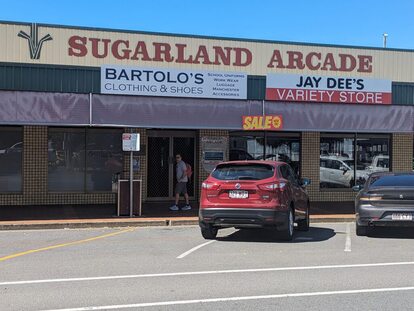OPINION COLUMN: Warped electoral system
OPINION

The voting system for Douglas Shire (and the 54 other councils in Queensland) is undemocratic, simplistic and unlikely to reflect the true wishes of voters.
Further, its system of a directly elected mayor invites instability and poor administration. The system should be changed before the 2028 election.
I will leave the objections to a directly elected mayor for a later article, so let’s turn to the system for electing councillors.
Under this system, if there are 12 candidates, about 15 per cent of ballots for councillors effectively go into the bin not contributing at all to the outcome and nearly 80 per cent of voters get no say as to who gets elected to the fourth council seat.
We have what is called the first-past-the-post system for electing the four councillors. That means each voter puts an X besides the four candidates that the voter wants to be elected.
All the Xs are added up and the four candidates with the most Xs are declared elected. It sounds all very democratic, but when you look at the detailed arithmetic it does not add up to democracy.
Maths is a big turn-off for many readers, so let me explain with an analogy from Powerball and Lotto.
In those games you win a prize if you successfully pick a certain number of randomly selected balls. The odds of picking all seven numbers plus the Powerball number from 35 numbers is about one in 132 million and you get a huge prize. The odds of picking just two and the Powerball is one in 66 and you get a tiny prize.
In this article I am using exactly the same maths and probability theory that is used by Powerball.
But in this case, we have 12 candidates (or numbers) and the winning ticket is 4 candidates (or numbers). You have a much better chance of your four choices being selected than of winning a major Powerball prize, but many voters will leave with no prize at all or just a minor one.
For a voter, unless you have put an X against at least one of the successful candidates your vote is completely wasted. Your four Xs go into the bin. The chances of that happening in Port Douglas is about 15 per cent.
It means that about 1000 votes in our council election are completely wasted.
It gets worse. Let us take the election for the fourth position. Every voter has a big interest in who should be the fourth councillor. But guess what? On average only 12.5 per cent (one in eight) of votes will be live in that count. The other 87.5 per cent of ballots will not count in determining the fourth councillor.
It is shamefully undemocratic. All voters should get a say in who should be the fourth and last councillor. The only way to do that is a preferential system.
Under a preferential system, all votes stay in until the end because everyone has numbered their preferences from 1 to 12. So even if none of your first four choices get elected your fifth to 12th choices get a slice of your vote in the order you have put them to count towards who does get elected.
The other trouble with the first-past-the-post system is that when voters vote they have to give equal weight to their four choices. But most voters have a greater preference for one candidate over another. They might really like one or two and not care too much for the rest. That choice is ignored by our present system.
Equally, a voter might detest a certain candidate, say “Smith” and would prefer to exercise the option of choosing any other candidate but Smith. But if that voter’s ballot has expired because their four Xs are for candidates who have been excluded early because they did not have enough votes, that voter’s desire to vote for anyone but Smith is lost.
The more candidate in the race, the worse first past the post becomes. With 12 candidates the last councillor could get elected with as few as 12 per cent of voters giving them an X.
The system we are using in 2024 was used in the Senate until the 1949 election when it was tossed out for its unfairness and propensity to delivery quirky results. Proportional preferential voting delivers far fairer results more reflective of the electorates wishes than our present system.
Next: Why we should not have a direct election for the mayor.























